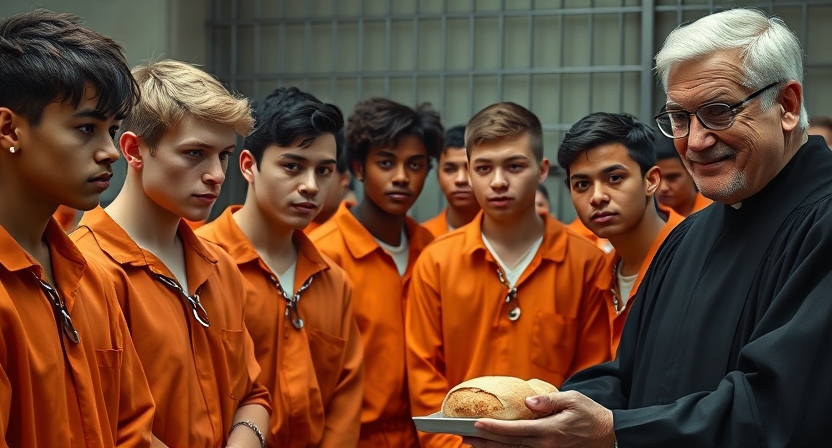Court rules, Illegal marijuana grow of any size only a misdemeanor in Michigan.
Past defendants may have grounds to fight their prior convictions.
Since the act’s passage in 2018, the outdated 1978 law has led to the charging and conviction of over 3,500 individuals, as per analysis shared by Michigan Supreme Court spokesperson John Nevin with MLive. A total of 1,072 people have been convicted under this law.
Those defendants may have grounds to fight their prior convictions.
From MLIVE
Attorney Michael Komorn of the Komorn law firm specializes in cannabis defense and currently has several clients charged under felony marijuana possession laws.
In light of the Court of Appeals ruling, he plans to file motions requesting those charges be reduced to misdemeanors. Komorn said most prosecutors and police have already placed a low priority on marijuana enforcement, except for “certain pockets” of the state. “They’ll raid like the old days, come in with guns and masks and go through that whole process,” he said, “but their dilemma is, how do we charge somebody.
What, do you get charged with a misdemeanor? “I have a number of cases where they’ve seized property and not charged anybody. And you can only reap the benefits of forfeiture if you get a felony conviction.”
KOMORN LAW
Michigan’s Top Cannabis Legal Defense
If you are facing any charges related to marijuana.
Call us only if you want to fight them…that’s what we do
TIP: We get calls all the time with people who regret hiring a lawyer to represent them for cannabis related charges that didn’t know squat about the laws. One shouldn’t have to tell them about the law before they convince you to plea. Hire right the first time because you may not get a second chance to fix it! Ask the attorney questions.
The appellate court reviewed a case that arose from an August 2020 raid in Tuscola County. This raid was conducted by the state police-led Thumb Narcotics Unit, which operates across Huron, Tuscola, Sanilac, and Lapeer counties.
Tuscola County prosecutors have charged Kejbou with two crimes related to the 1978 drug law. This law stipulates that individuals found in possession of less than 20 marijuana plants may face a maximum sentence of four years in prison, while those possessing over 200 plants could face up to 15 years of imprisonment.
Based on the aforementioned felony charges, the Tuscola County Prosecutor’s Office further filed charges against Kejbou for the offense of possession of a firearm in connection with the commission of a felony.
The unanimous ruling by the three-judge Court of Appeals panel concludes that the case should be prosecuted under the Michigan Regulation and Taxation of Marijuana Act (MRTMA).
Violations for exceeding allowed amounts range from civil infractions to misdemeanors.
As the act states,“subject to imprisonment unless the violation was habitual, willful, and for a commercial purpose or the violation involved violence,”
The panel determined that felony punishments were not applicable.
Jan 2024 – Update on Cannabis Scheduling
Officially, cannabis still remains federally prohibited under the Controlled Substances Act as a Schedule I substance. This classification is reserved for substances that are considered to lack any currently accepted medical use and have a high potential for abuse.
However, the U.S. Department of Health and Human Services recommended in August that cannabis be moved from Schedule I to Schedule III.
It’s an election year open the panderverse portal.
More Posts

If I renounce my US citizenship can I get it back?
Venezuela or Bust If I renounce my U.S. citizenship can I get it back?Renouncing U.S. citizenship is a serious legal action. It involves voluntarily giving up your status as a U.S. citizen, usually by signing an oath of renunciation at a U.S. embassy or consulate...

New Laws in Effect for Michigan in 2025
Some laws in effect in 2025 "Enacted by the People of Michigan" Here we go...Minimum wage Improved Workforce Opportunity Wage Act - Michigan's minimum wage will increase twice during 2025, per a 2018 Supreme Court ruling. Starting Jan. 1, 2025, the standard minimum...

The Police Took Your Cellphone – Now What?
Everything you have and say will be evidence used against you. The Police took your cellphone - Now what?After your arrest, you arrive at the police station where you go through the booking process, and your cellphone is taken from you. Once you are released, your...

Feeling Bullied? Here’s Michigan’s Anti Bullying Laws.
Michigan Anti-Bullying Laws & Policies Components of State Anti-Bullying Laws and Regulations How are bullying and cyberbullying defined in Michigan anti-bullying laws and regulations? Michigan anti-bullying laws and regulations include the following...

Former 3M scientist who made unsettling PFAS discovery says bosses deceived her
Gee - What a surprise... When a former 3M scientist discovered the company’s chemicals were in human blood in the general population, she says her bosses misled her to believe it was harmless.3M accused of deceiving its own scientist about PFAS in human blood Hansen...

Drones – What Drones?
Jersey cops launched into the night sky with catapults to throw dreamcatchers at the unknown drones to entangle their props and bring em down! Just kidding - I think.Darrr.. What drones? Those drones pose no threat there are no drones. That's just a balloon,...

Cash For Kids Judge Pardoned (The Kickback Club)
Biden’s commutation for Judge in ‘kids for cash’ scandal should anger the entire universe.Biden’s commutation in ‘kids for cash’ scandal. BY MICHAEL RUBINKAMUpdated 5:32 PM EST, December 13, 2024A judge implicated in one of the most notorious judicial scandals in U.S....

How Much Does It Cost To Hire a Criminal Defense Attorney?
Don't do the crime - if you can't pay the price.Average Flat Fees. Some criminal defense attorneys charge a flat fee for certain types of cases, instead of billing by the hour. This may or may not include filing fees, motions, fees, etc. Flat fees include: DUI/DWI –...

What do you do when you are pulled over for suspected DUI?
If you are pulled over for suspected drunk driving you are probably going to be arrested. The less you say - the better off you are in the long run. If you find yourself being pulled over for suspected DUI, ensure you pull over safely to the roadside, maintain a...

Trump plans – How does Cannabis Business fit in?
You work hard. Now get ready to work harder to prepare to give more.President Biden's administration has proposed the reclassification of marijuana from a Schedule I controlled substance to a Schedule III drug, which recognizes its medical benefits. This significant...










